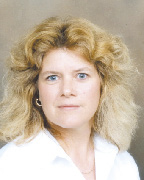On June 3, 2009 after a very long day, the Senate and the House passed An Act Concerning Brownfields Development Projects, an amended form of Substitute House Bill 6097 (SB 6097) with attached Senate and House Amendments. While SB 6097 has yet to be signed by Governor M. Jodi Rell, her signature is expected in the near future.
The bill makes a number of significant changes to regulations related to brownfield properties and to remediating brownfield and other properties under the Voluntary Remediation Program in Connecticut General Statutes (CGS) 22a-133x and the Transfer Act Program (CGS 22a-134). It extends liability protections to municipalities seeking to promote brownfield redevelopment and establishes a program to afford additional protection from liability to brownfield developers, particularly related to off-site pollution. In general, the bill provides changes that should reduce uncertainties associated with redeveloping brownfield properties and enhance their marketability.
For example, effective October 1, 2009, the bill establishes an abandoned brownfield cleanup program. Eligible properties must have been abandoned or significantly underutilized since October 1, 1999 and have a redevelopment plan that has regional or municipal economic benefit. The person responsible for pollution on or emanating from the property must be indeterminate, no longer in existence or otherwise unable to perform necessary remediation of the property. Eligible persons intending to redevelop the property must be committed to take title to the property and cannot have any affiliation with a person, company, etc. that caused the pollution, nor can eligible persons have any obligation required by law or order to clean up the property. Person of course in these contexts refers to both individuals and businesses.
The abandoned brownfield property must either be investigated and remediated in accordance with the Transfer Act or with the Voluntary Remediation Program under CGS 22a-133x. Significantly, an eligible person who holds title to the property is not responsible for investigating or remediating off-site contamination that occurred prior to the taking title to the property.
Effective on passage, the bill creates additional exceptions to the Transfer Act (CGS 22a-134) when municipalities or economic development agencies acquire and, as importantly, subsequently transfer any brownfield property that could otherwise be subject to the Transfer Act. To gain the exception, the properties must be acquired by foreclosure, eminent domain or condemnation. Interestingly, the definition of municipality also includes an entity created by the municipality as a nonprofit economic development corporation or limited liability company - this definition of municipality also extends the rights and obligations of the created entity into several other existing brownfield statues through other changes within SB 6097. To maintain the exception from the full weight of the Transfer Act, the party acquiring the property from the municipality or economic development agency must, among other conditions, enter the property into the Voluntary Remediation program under CGS 22a-113x. Of course that party must also have had no hand in creating the contamination of the brownfield in the first place.
For municipalities, these changes provide more flexibility in the ownership of a brownfield without losing current innocent party protection for pre-existing conditions on the brownfield property and allow the municipalities to more effectively address an abandoned brownfield. For the buyer of a brownfield, the Voluntary Remediation program under CGS 22a-133x provides slightly more flexibility than remediation conducted under the Transfer Act program, particularly with respect to timing. Protection from off-site contamination liability at an abandoned brownfield is also a major plus. All together, the provisions of SB 6097 will make it easier for municipalities and developers to work together to clean up and redevelop abandoned brownfield properties.
Kathleen Cyr, PE, LEP is a vice president with GZA GeoEnvironmental, Inc., Fairfield, Conn.
Tags:
Changes to Connecticut's brownfields laws - implications for municipalities and developers
June 17, 2009 - Connecticut









